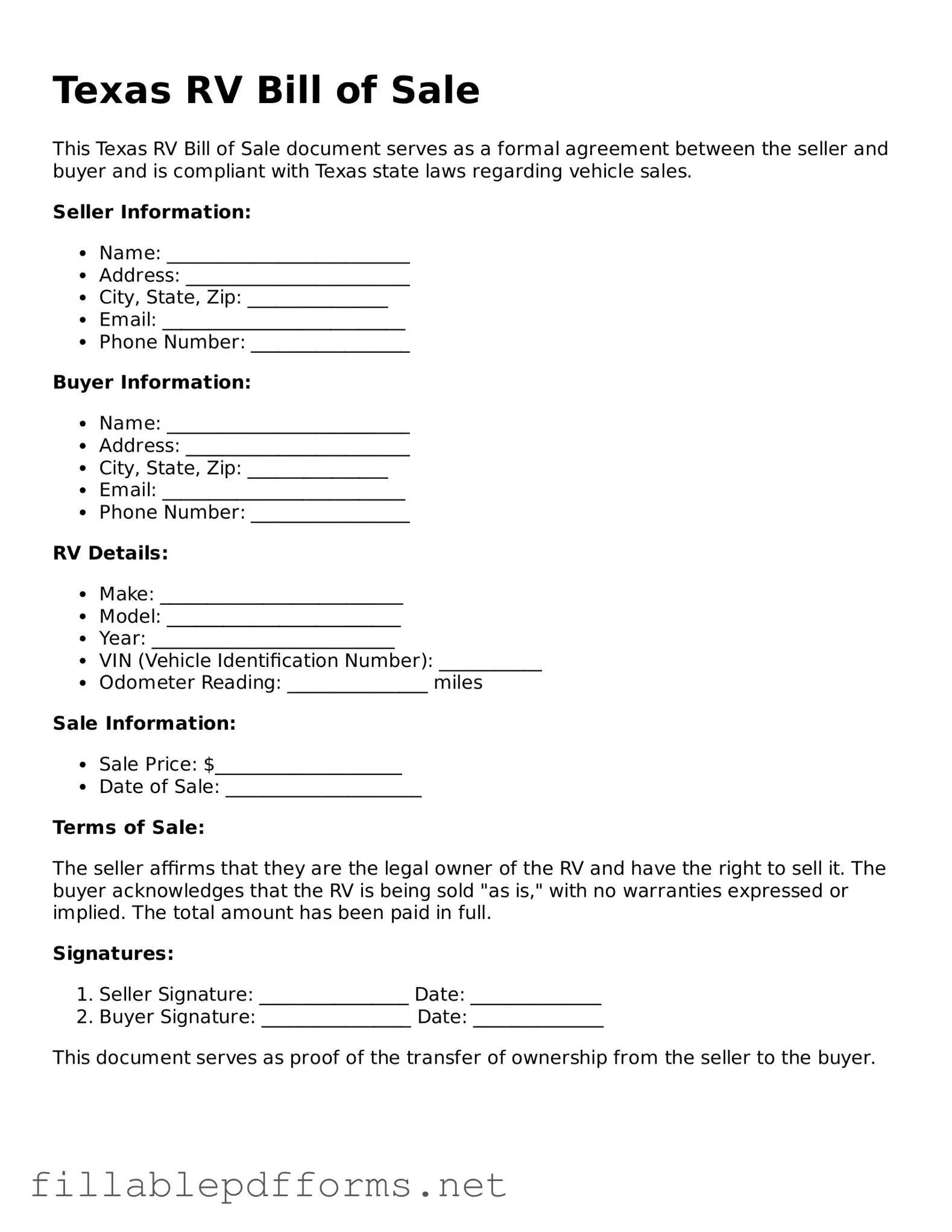Attorney-Verified RV Bill of Sale Form for Texas State
The Texas RV Bill of Sale form is a legal document that records the transfer of ownership of a recreational vehicle from one party to another. This form serves as proof of the transaction and includes essential details such as the buyer's and seller's information, vehicle description, and sale price. Proper completion of this document is crucial for both parties to ensure a smooth transfer and to protect their rights.
Launch Editor Here

Attorney-Verified RV Bill of Sale Form for Texas State
Launch Editor Here

Launch Editor Here
or
▼ RV Bill of Sale PDF
Almost there — finish the form
Complete RV Bill of Sale online fast — no printing, no scanning.